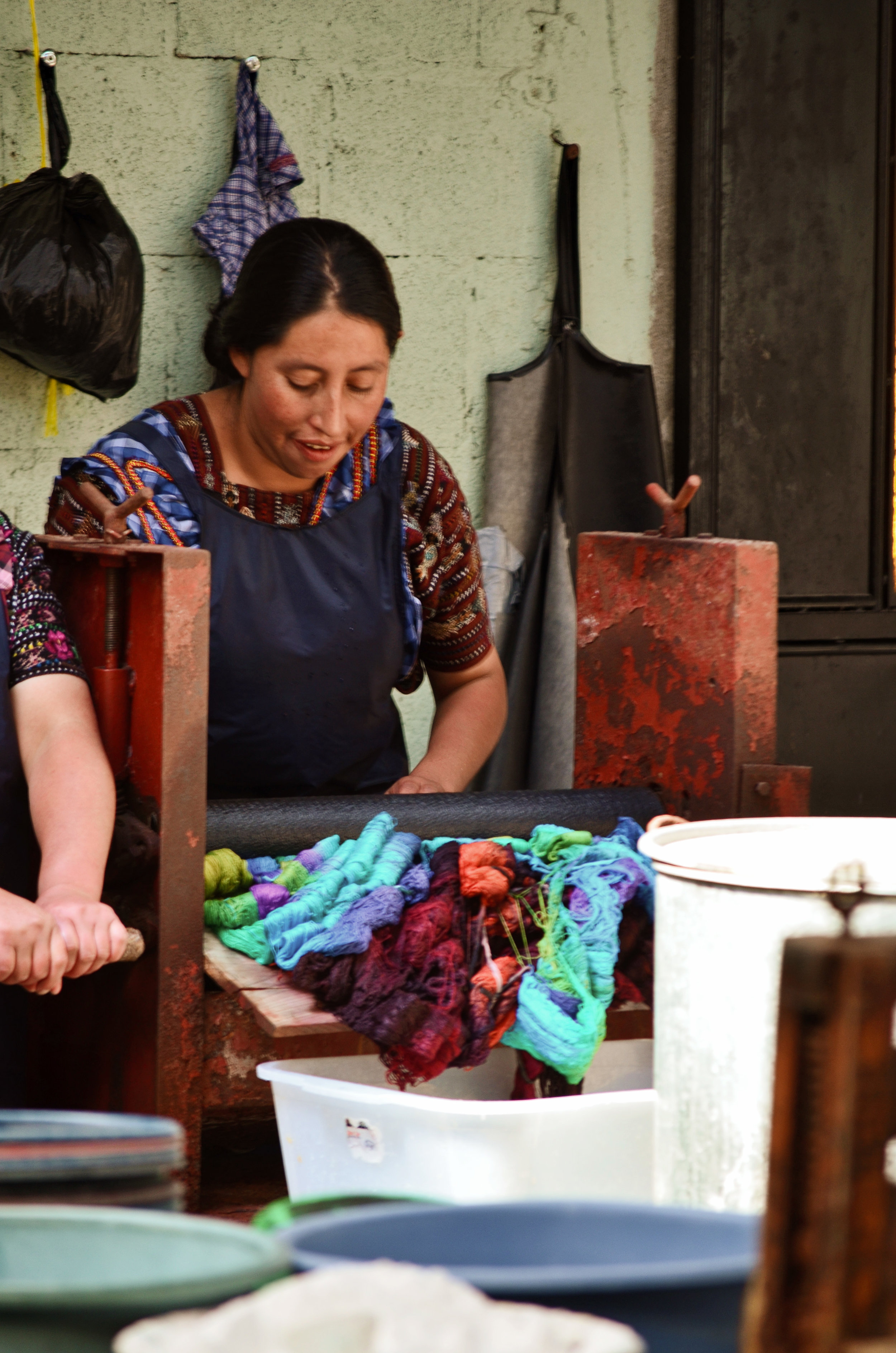A thread of hope: Visiting a Mayan women's weaving cooperative in Sololá
It's impossible to not fall in love with the elaborate and wildly colorful textiles of Guatemala. Here, ancient tradition merges with modern life as Mayan women continue to weave and wear long skirts and huipiles like their ancestors. Passed between generations of women, these weaving techniques using the backstrap loom remain largely unchanged from pre-Columbian times. Integral to their identity (each town has their own patterns), this art form is still practiced across Guatemala and has gained world-wide recognition. An act of resistance to colonization, a method of cultural preservation, and a means of generating income, this thriving artistic expression is one Guatemala's proudest traditions.
If you visit Guatemala, you will find no shortage of women selling these beautiful textiles in the streets, markets, or shops. But options vary greatly in craftsmanship, cost, and ethical practices. Luckily, there is an incredible Mayan women's weaving cooperative in Sololá, very close to Panajachel, where you can find high-quality textiles and support fair-trade practices.
La Asociación Maya de Desarrollo began in 1987 and is a cooperative made up of 180 Mayan master backstrap weavers. The women come from six villages around Sololá, and together they own and operate the collective. They hand-dye high-quality fibers in small batches with dyes approved for import by the European Union, meaning they are safer for human health and the environment. The women then weave scarves, ponchos, shawls, and bags with contemporary designs using the traditional backstrap loom, which means they help preserve this ancient technique while producing goods that are marketable to a worldwide clientele. What makes it even better is that the women weave from home, meaning that they are able to stay united with their families rather than seek domestic work in other towns or countries. The cooperative has been so successful that on average, each weaver makes between $8-12 a day, compared to $1-2 a weaver not associated with the collective makes. Because the women here make a good income, they are seen as valuable financial contributors to their households. This is so critical in a deeply patriarchal society like Guatemala, where gendered violence is widespread.
We were lucky to learn about La Asociación Maya de Desarrollo through our host and friend in Panajachel, Eliza, who has worked closely with the women at the cooperative for years to bring their beautiful textiles to the American market. She took us to the cooperative, which is open to the public. There you can visit the women and watch them spinning and dyeing the fibers. You can also purchase textiles directly from the cooperative. Rebecca bought an amber poncho there and wore it almost daily in Guatemala. While walking around different towns on Lake Atitlán and in Antigua, so many weavers themselves came up to her to compliment her on how beautiful and well-made the poncho was. If other master weavers are blown away by the quality, you know it's a good product.
If you're interested in meeting Mayan weavers and purchasing ethically-made Guatemalan textiles, we highly recommend a visit to La Asociación Maya de Desarrollo. To get there from Panajachel, take the chicken bus from any of the bus stops around the town to Sololá for Q3 ($0.50 USD). The cooperative is located at 8a Avenida 13-21 Zona 2 in Barrio San Bartolo, between the Sololá traditional market and the main cemetery, a few blocks from the bus. Walking or driving, start at the central park where the bus leaves for Panajachel. Go left downhill one block. Turn right on 8a Avenida (Cemetery Road). Go three blocks. There will be a wall that says La Asociación Maya de Desarrollo on it. Just walk through the gate, and you're there!
If you have questions, you can contact Eliza at 001-617-308-7026 (US number) or athreadofhope@yahoo.com. You can also order online at www.athreadofhope.coop.




